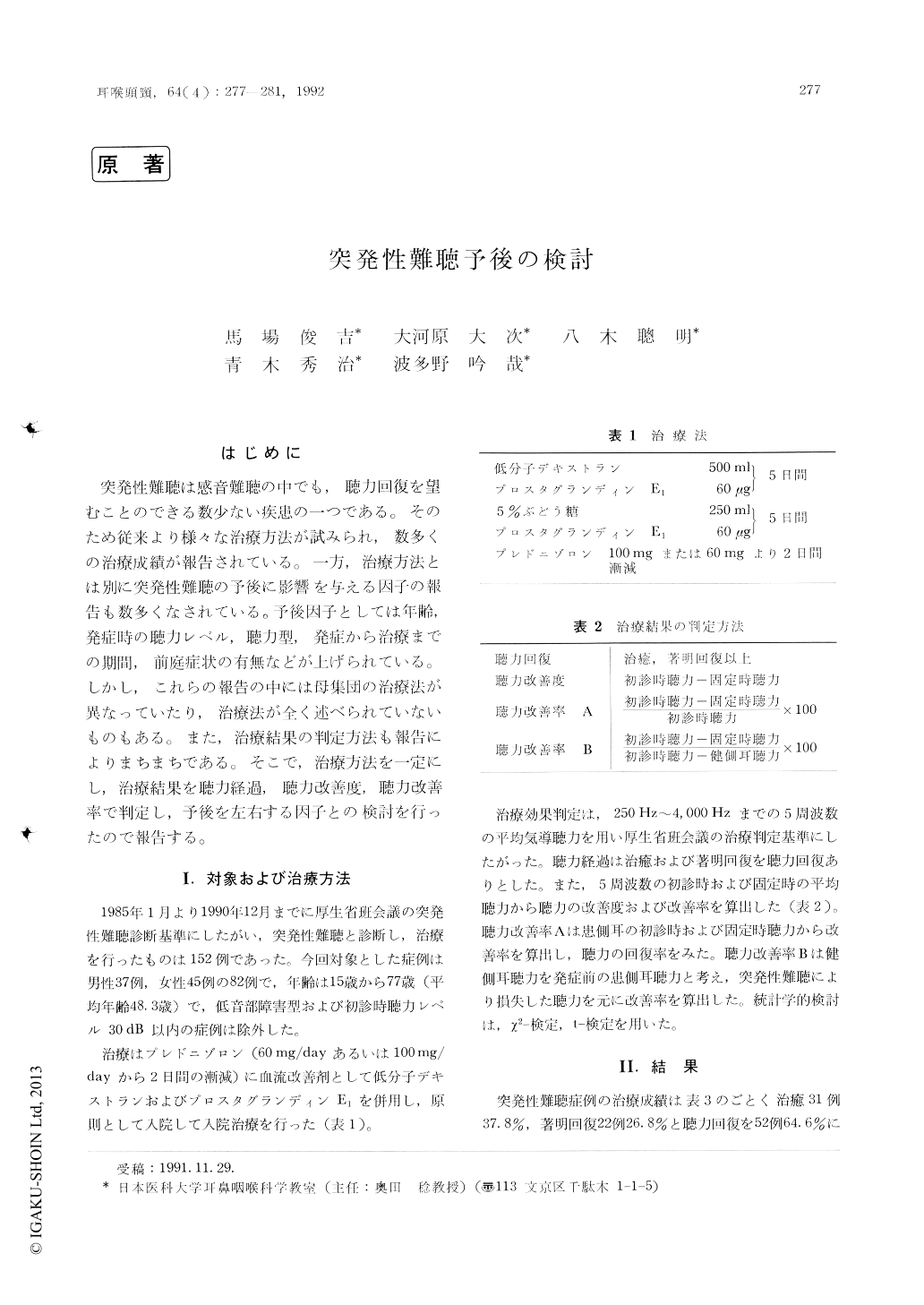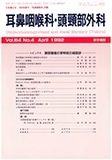Japanese
English
- 有料閲覧
- Abstract 文献概要
- 1ページ目 Look Inside
はじめに
突発性難聴は感音難聴の中でも,聴力回復を望むことのできる数少ない疾患の一つである。そのため従来より様々な治療方法が試みられ,数多くの治療成績が報告されている。一方,治療方法とは別に突発性難聴の予後に影響を与える因子の報告も数多くなされている。子後因子としては年齢,発症時の聴力レベル,聴力型,発症から治療までの期間,前庭症状の有無などが上げられている。しかし,これらの報告の中には母集団の治療法が異なっていたり,治療法が全く述べられていないものもある。また,治療結果の判定方法も報告によりまちまちである、そこで,治療方法を一定にし,治療結果を聴力経過,聴力改善度,聴力改善率で判定し,予後を左右する因子との検討を行ったので報告する。
Prognostic factors such as the age, period from the onset to treatment and presence or absence of vesti-bular symptoms for sudden deafness were studied. There was no relationship between the age and hearing at the first visit. However, the hearingwhen it has fixed became worse with the advance of age and the degree of improvement in hearing was decreased in the elderly patient. According to a study based on the period from the onset to the initiation of treatment, no difference in pro-gnosis was found.
Regarding the relationship between the vesti-bular symptoms and hearing, deafnness at the first visit and on fixation was profound in those who have vestibular symptoms. As to the degree of improvement in hearing, however, differences due to the presence or absence of vestibular symptoms were not recognized. On the basis of the results mentioned above, the age and vestibular symptoms were thought to be the factors that affect the prognosis. It is possible to say that the age is concerned with the recovery of hearing and the presence or absence of vestibular symptoms is concerned with the severity of deafness.

Copyright © 1992, Igaku-Shoin Ltd. All rights reserved.


